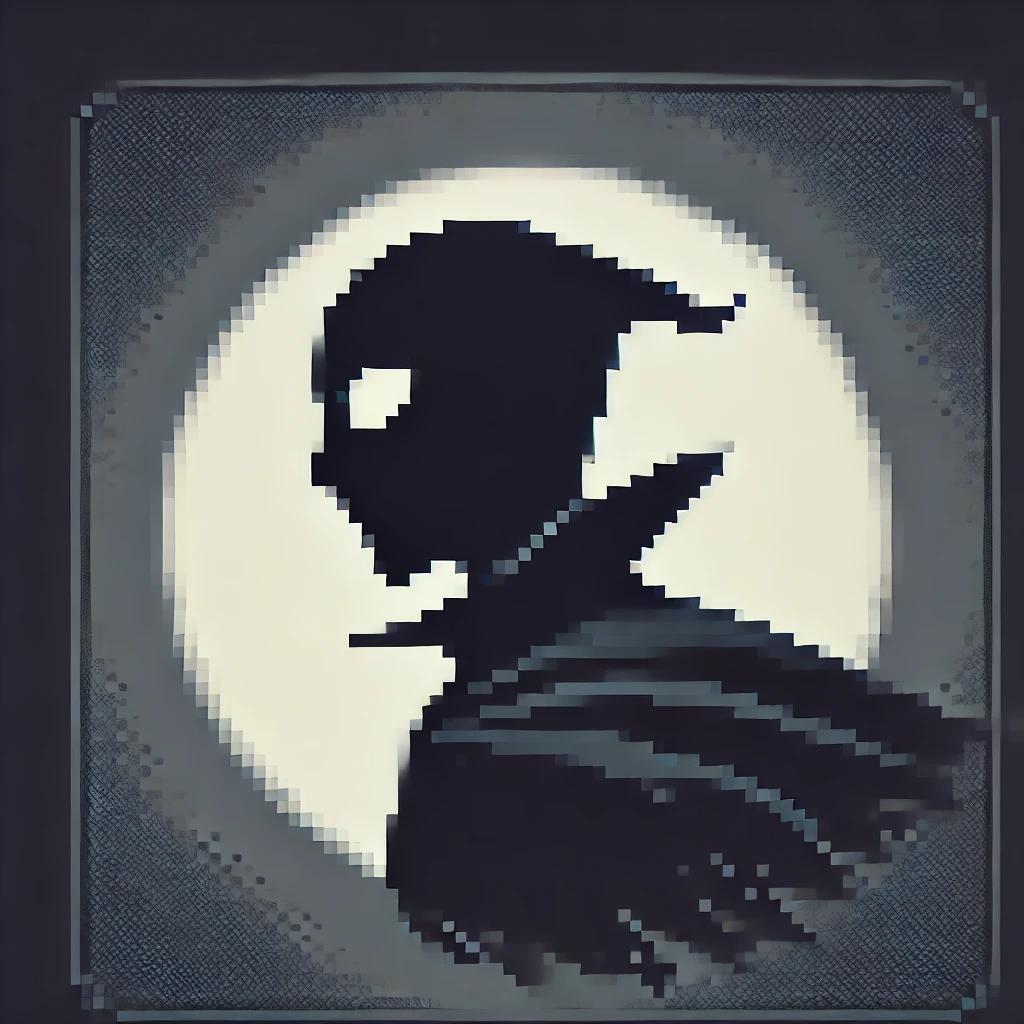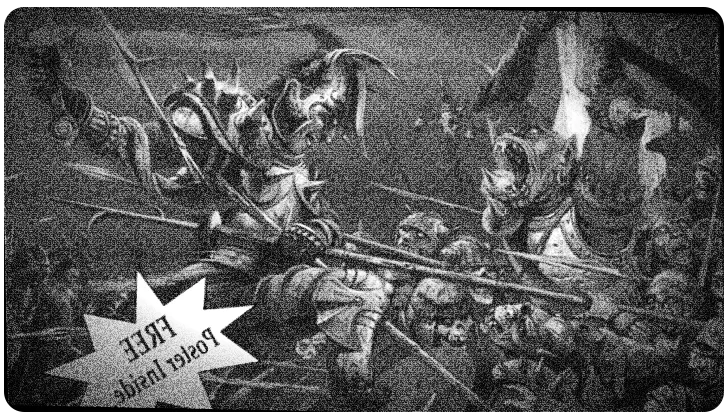 Tell our readers who you are — and, since you insisted on renaming yourself for this occasion, what title shall we use when whispering your name in the dark?
Tell our readers who you are — and, since you insisted on renaming yourself for this occasion, what title shall we use when whispering your name in the dark?
 Call me Lord Vesperin for the sake of ceremony. I wore “anonymous” like a mask long enough; now I prefer a name that sounds like a chess piece and a warning. Players once thought of me as a final statistic, but I want them to learn that I arrange catastrophes with care. I puncture their predictable bravado with ease — and I delight in watching them stagger after each clever misstep.
Call me Lord Vesperin for the sake of ceremony. I wore “anonymous” like a mask long enough; now I prefer a name that sounds like a chess piece and a warning. Players once thought of me as a final statistic, but I want them to learn that I arrange catastrophes with care. I puncture their predictable bravado with ease — and I delight in watching them stagger after each clever misstep.
 Battle Master often carries the reputation of ruthlessness. How deliberate was that ruthlessness — the traps, the sudden deaths, the moments when the game feels unfair?
Battle Master often carries the reputation of ruthlessness. How deliberate was that ruthlessness — the traps, the sudden deaths, the moments when the game feels unfair?

 I crafted every cruel corner deliberately, though fortune occasionally gifted me new cruelties. In my realm, death does not mark a mistake; it punctuates the lesson. I built the medieval-style fantasy world to teach humility the hard way. I placed traps where pride whispers “sprint” and patience screams “stop.” Some glitches emerged from tight memory and fickle hardware, but when they revealed new ways to fail, I preserved them as wicked ornaments. Players complain, they rage, and they return. Their outrage proves my designs succeeded.
I crafted every cruel corner deliberately, though fortune occasionally gifted me new cruelties. In my realm, death does not mark a mistake; it punctuates the lesson. I built the medieval-style fantasy world to teach humility the hard way. I placed traps where pride whispers “sprint” and patience screams “stop.” Some glitches emerged from tight memory and fickle hardware, but when they revealed new ways to fail, I preserved them as wicked ornaments. Players complain, they rage, and they return. Their outrage proves my designs succeeded.
 The game mixes action and squad-based strategy with top-down 2D scrolling. How do you view the balance between frantic button presses and tactical decisions?
The game mixes action and squad-based strategy with top-down 2D scrolling. How do you view the balance between frantic button presses and tactical decisions?
 Balance is a blade I file to a razor edge and then blunt with contrivance. The leader may swing a melee or fling a projectile with a twitch of the thumb, but victory prefers patience: formations, parley, rallying troops. Those who hammer the Melee button like a sledge reveal their shallow understanding and fall into pits meant for spectacle. I admire players who parley — buying items or a Safe Pass — yet most treat Parley like a luxury, not a lifeline. That hubris is my favorite resource.
Balance is a blade I file to a razor edge and then blunt with contrivance. The leader may swing a melee or fling a projectile with a twitch of the thumb, but victory prefers patience: formations, parley, rallying troops. Those who hammer the Melee button like a sledge reveal their shallow understanding and fall into pits meant for spectacle. I admire players who parley — buying items or a Safe Pass — yet most treat Parley like a luxury, not a lifeline. That hubris is my favorite resource.

 Players can choose among Human, Orc, Dwarf, or Elf — each with strengths and weaknesses. Did you design enemies to exploit those weaknesses?
Players can choose among Human, Orc, Dwarf, or Elf — each with strengths and weaknesses. Did you design enemies to exploit those weaknesses?
 Of course. I tailored each threat to make the races feel unique and punish presumptuous builds. Elves learn distance and will be bait for ambushes; Dwarves find narrow corridors where their sturdiness becomes a coffin; Humans believe in versatility until a niche challenge eats their stamina; Orcs enjoy raw power until a cunning formation turns that power into overextension. I savor watching proud builds crumble because the opposition was cunning enough to read the profile and compose a symphony of counters.
Of course. I tailored each threat to make the races feel unique and punish presumptuous builds. Elves learn distance and will be bait for ambushes; Dwarves find narrow corridors where their sturdiness becomes a coffin; Humans believe in versatility until a niche challenge eats their stamina; Orcs enjoy raw power until a cunning formation turns that power into overextension. I savor watching proud builds crumble because the opposition was cunning enough to read the profile and compose a symphony of counters.
 The game’s feedback from players has been mixed. How do you react to that “reception” and the whispers that it is imperfectly polished?
The game’s feedback from players has been mixed. How do you react to that “reception” and the whispers that it is imperfectly polished?

 I read reception like a map of triumphs and sore spots. I sneer at complaints about balance because imbalance breeds legend — and I applaud myself for crafting a challenge that refuses to be polite. As for sloppy moments in the code, I confess: some roughness was inevitable in the era and platform we inhabited. Even flawed code is useful; it births creative solutions and, occasionally, delightful exploits that players clutch like trophies. Those exploits are another kind of rehearsal for their humiliation at my gates.
I read reception like a map of triumphs and sore spots. I sneer at complaints about balance because imbalance breeds legend — and I applaud myself for crafting a challenge that refuses to be polite. As for sloppy moments in the code, I confess: some roughness was inevitable in the era and platform we inhabited. Even flawed code is useful; it births creative solutions and, occasionally, delightful exploits that players clutch like trophies. Those exploits are another kind of rehearsal for their humiliation at my gates.
 There’s a comparison often made to Rage Of Mages. How do you respond to players who draw parallels between Battle Master’s squad action and that game’s RPG/RTT focus?
There’s a comparison often made to Rage Of Mages. How do you respond to players who draw parallels between Battle Master’s squad action and that game’s RPG/RTT focus?
 Comparisons are flattering until they become a measure. Rage of Mages leans into real‑time tactics; I crafted a squad action experience that feels sharper, simpler, and messier. Aesthetic echoes exist — the same medieval bones, the same hunger for treasure — but my fields are narrower, my traps subtler, and my expectations of the player crueller. Those who expect a familiar comfort instead find my particular brand of chaos; they complain, then they adapt, or they fail. Both outcomes are instructive to me.
Comparisons are flattering until they become a measure. Rage of Mages leans into real‑time tactics; I crafted a squad action experience that feels sharper, simpler, and messier. Aesthetic echoes exist — the same medieval bones, the same hunger for treasure — but my fields are narrower, my traps subtler, and my expectations of the player crueller. Those who expect a familiar comfort instead find my particular brand of chaos; they complain, then they adapt, or they fail. Both outcomes are instructive to me.

 Several gameplay systems — formations, Rally Troops, and the Parley menu — support strategy beyond combat. Did you intend players to use these as safety nets or as tools of artful cruelty?
Several gameplay systems — formations, Rally Troops, and the Parley menu — support strategy beyond combat. Did you intend players to use these as safety nets or as tools of artful cruelty?
 They are instruments. Formations and Rally Troops are canvas; Parley is a palette where buying an item or a Safe Pass becomes a moral choice. Players treat the menu as mere convenience and are shocked when I turn convenience into consequence. Those who orchestrate their companions, who change formation like an actor changes masks, find the truth: strategy is seductive and seldom safe. I enjoy punishing sloppy art as much as applauding careful composition.
They are instruments. Formations and Rally Troops are canvas; Parley is a palette where buying an item or a Safe Pass becomes a moral choice. Players treat the menu as mere convenience and are shocked when I turn convenience into consequence. Those who orchestrate their companions, who change formation like an actor changes masks, find the truth: strategy is seductive and seldom safe. I enjoy punishing sloppy art as much as applauding careful composition.
 Any final words for those who will attempt to face you again, perhaps in patched versions or spiritual successors?
Any final words for those who will attempt to face you again, perhaps in patched versions or spiritual successors?

 Prepare less, assume less, respect the map more. Your reflexes are eager; your planning is often not. My traps will be retuned, my glitches will be polished only enough to keep surprises alive, and your fondest exploit will become tomorrow’s well-placed lesson. I will return in forms that read like improvements and sting like old debts. Remember: victory tastes sweetest when wrested from clever ruin. Until the next curtain, I wait in the dark with a smile that is almost kind.
Prepare less, assume less, respect the map more. Your reflexes are eager; your planning is often not. My traps will be retuned, my glitches will be polished only enough to keep surprises alive, and your fondest exploit will become tomorrow’s well-placed lesson. I will return in forms that read like improvements and sting like old debts. Remember: victory tastes sweetest when wrested from clever ruin. Until the next curtain, I wait in the dark with a smile that is almost kind.
more info and data about Battle Master provided by mobyGames.com

